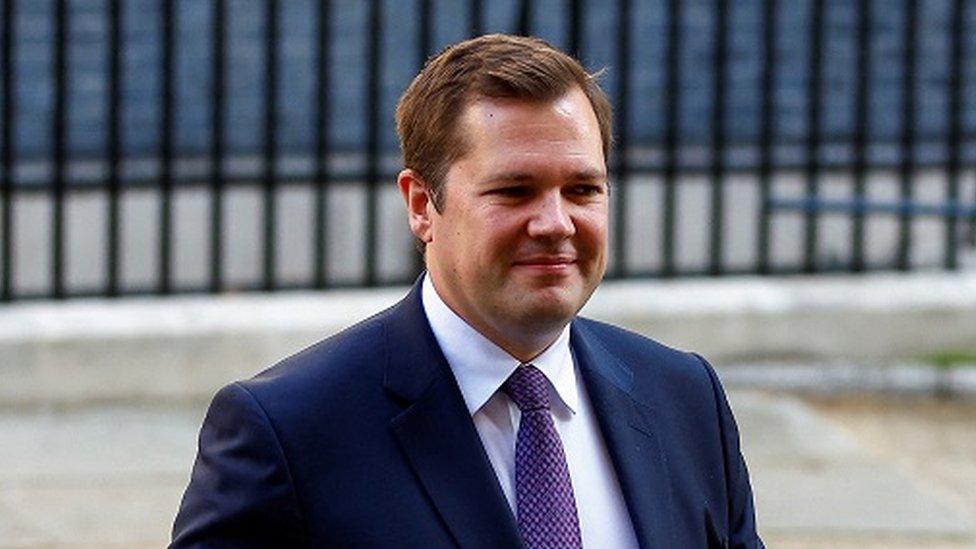Robert Jenrick blames high migration on 'naive' post-Brexit policies
- Published

Net migration soared to record levels after Brexit because the government introduced an "even more liberal" system than when the UK was in the EU, Robert Jenrick has claimed.
The immigration minister said "quite naive" decisions had been made when free movement from the EU ended.
He appeared to be taking a swipe at Boris Johnson's administration, although he did not name the former PM.
Net migration to the UK hit an all time high of 606,000 in 2022.
Speaking at a fringe event at the Conservative conference, Mr Jenrick said: "Where I think we have gone wrong, immediately after leaving the EU we established a legal migration system that was, if anything, even more liberal than the system we had when we were in the EU."
He added that the government had been "quite naive about the consequences in terms of numbers".
But he claimed ministers were now taking action - such as restricting the rights of some foreign students to bring in family members - that would bring numbers down and allow the government to "finish the revolution we started with Brexit".
Madelaine Sumption, of Oxford University's migration observatory, said: "Despite the end of free movement there has been a huge increase in the number of people getting work visas throughout the care sector."
Boris Johnson's government added senior care workers to the UK's shortage occupation list in 2021, in an effort to fill the growing number of vacancies created by the end of free movement.
Care workers were added to the list in February 2022.
Applications from care workers have soared and now account for two in five of all skilled worker visas issued by the UK, according to Home Office figures, external.
Ms Sumption said ending care worker visas - as some Conservative MPs have been demanding - would risk a staffing crisis in the sector but improving pay and conditions would cost "substantial sums of money".
She told the Policy Exchange meeting that net migration - the difference between the numbers entering and leaving the country - was set to fall in the coming years, as recent increases had also been driven by one-off factors such as the war in Ukraine.
But, she added, it was unlikely to return to pre-Brexit levels.
The level of immigration to the UK came up at another fringe event organised by a group of Tory MPs calling themselves the New Conservatives.
Calling for a reduction in visas awarded to migrant workers and foreign students, Conservative MP Tom Hunt said immigration should not be viewed "purely through the lens of GDP".
"Being frank, it's not xenophobic, when you walk into your town centre, to not want to feel like you're living in a foreign country," Mr Hunt said.
"I don't think that makes you a xenophobe. I think that makes you somebody who wants to live in a community with shared values."